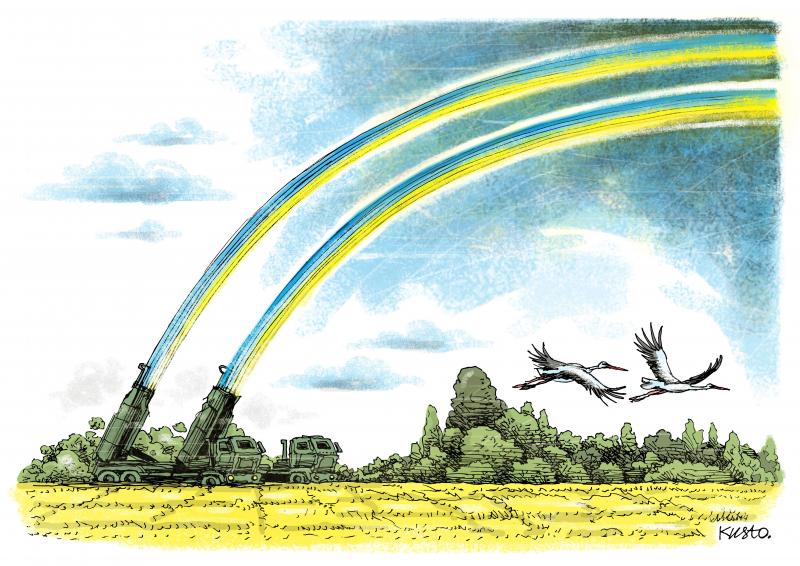It is no secret that Russian military aggression has affected Ukrainians in different ways. You could say men and women found themselves being treated according to different historical eras.
Even after 24 February 2022, the majority of Ukrainian women continue to inhabit the realities of the liberal twenty-first century in which the individual's personal rights occupy first place and their obligations to the country and nation are secondary. The average Ukrainian woman has the right to choose whether or not to enlist in the armed forces. They can also decide whether to stay in Ukraine or cross the borders for a peaceful Europe. They are also the ones who can decide to hold more conservative family values or not have children, whether it is the name of devoting themselves completely to a career, or other.
Except for occupied territories, the gains of personal freedom and female independence secured by the feminist movement were not greatly affected by the full-scale war.
In contrast, the lives of the majority of Ukrainian men underwent a significant transformation towards a more archaic situation. It is closer to the realities of the first half of the twentieth century, when the individual's obligations to their country and state were far more significant than their personal rights.
The average Ukrainian man does not have the right to choose whether or not they serve in the army; whether to stay in his homeland or go abroad. The state chooses for him. Any attempt to evade that choice is illegal, condemned and prosecuted.
This is the severe demand of the time: Russian military aggression has returned Ukrainians to the era of total war, complete with million-strong armies and colossal human losses.
The problem is that a conservative approach to the gender role of men does not unite very effectively with the modern liberal approach to the gender role of women.
During a period when every male is considered a potential soldier every woman is assigned a specific social function, the production of new soldiers. If, for males, military service was not a choice but an obligation then the birthing of as many children as possible was also considered not to be a woman's choice but her duty.
Attempts to reject this proposed role and select a different way of life on the part of women resulted in public condemnation. Within this harsh reality there was no such principle as ‘my body is my business’ nor could there be.
The abortion ban in Poland, dating from the 1990s, seems like a barbaric tradition, shaming Russia’s neighbour before the civilised world. However, during the first half of the twentieth century, the impossibility of freely making choices for one’s own body was not a peculiarity of totalitarian regimes such as Stalin's or Hitler's, but a common global practice.
An English woman living in prime minister Winston Churchill's era or a Finnish woman during military leader Baron Carl Gustaf Emil Mannerheim's rule could not legitimately terminate a pregnancy of her own free will. And the laws adopted in democratic France in the 1920s not only increased the penalties for an abortion, but also prohibited the use of contraceptives: it was believed that this measure would help to increase the population and make up for the losses suffered by the Republic at Marne and Verdun, during World War I. These sombre pages of history are only rarely recollected in Ukraine, although Russia’s war of aggression has become a demographic catastrophe.
We heard voices saying that in order to preserve the nation there would have to be restrictions on men travelling abroad after the war. This thesis contradicted not only liberal values but also elementary logic: it is obvious that prolonging the ban on leaving Ukraine will not solve the country's demographic problem.
With the intense stress of this war, fantasies akin to American writer Robert A. Heinlein's 1959 novel Starship Troopers are often encountered in Ukrainian social media networks: it is proposed that we limit the civil rights of men who did not fight in the war or defend their country after the events of 24 February 2022.
If this anti-liberal logic is further developed it will require discriminatory measures against childless women who did not serve in the armed forces: it would follow that they too did not make a significant contribution to the national cause.
There have been no such calls to adopt discriminatory measures against women. The inertia of liberalism, feminism and social progress achieved in recent decades is having an effect.












